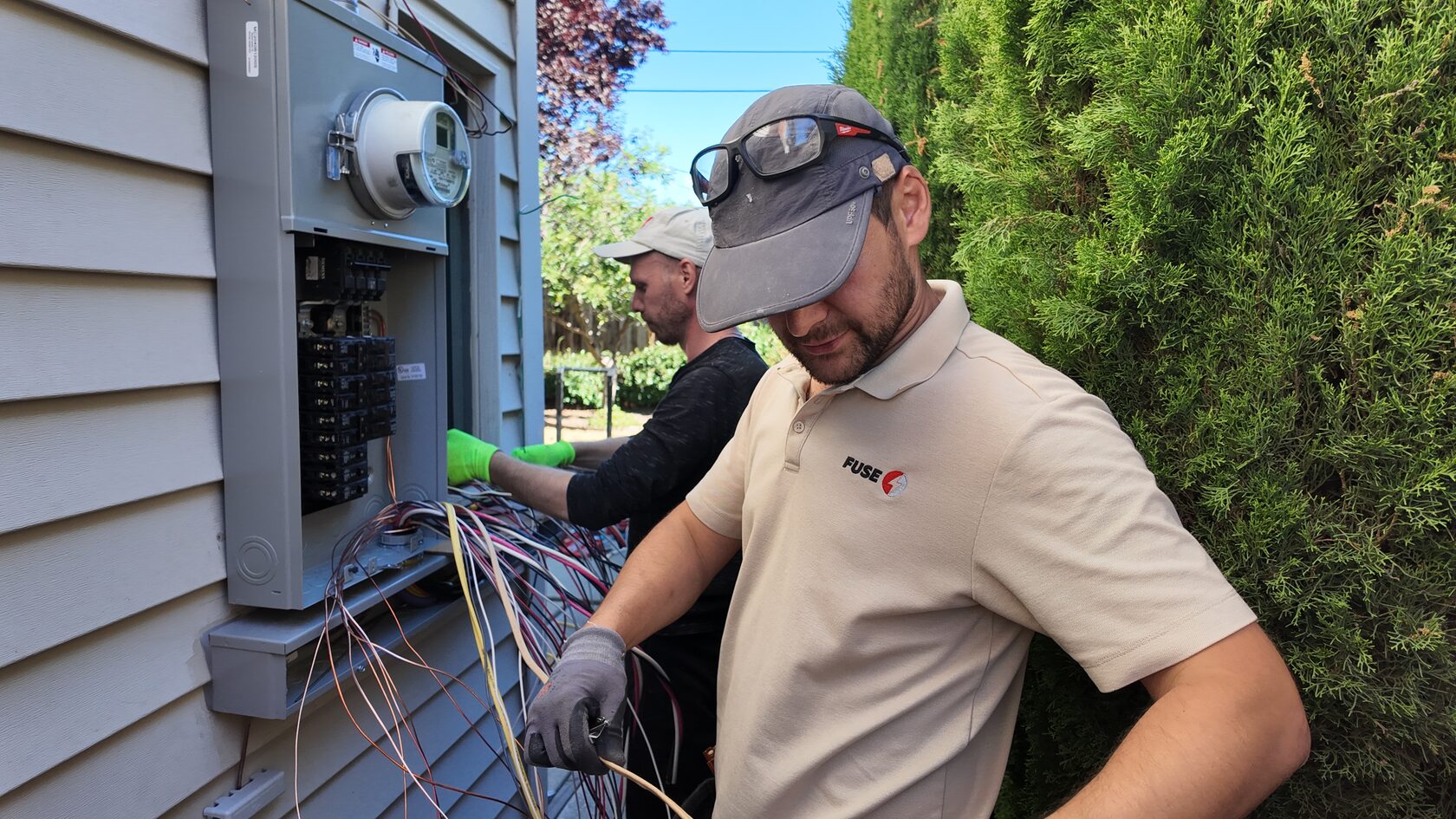Electrical fires can damage your home significantly. But don’t worry, we know what you should do to prevent such a thing from happening. Whether you’re in an older home with outdated wiring or simply want to know how to protect your home, these steps can make a world of difference.
Understanding the Common Causes of Electrical Fires
First essential step is to know where electrical fires comу from. Here are the most common reasons:
- Faulty Wiring. Aging or damaged wiring is a common cause of electrical fires, especially in older homes.
- Overloaded Circuits. Plugging too many devices into a single outlet or extension cord can cause overheating.
- High-Powered Appliances. Appliances like heaters, dryers, and microwaves consume significant power and can overheat if left unattended.
- Damaged Outlets and Switches. Loose or cracked outlets and switches can lead to sparks that ignite fires.
Schedule Regular Electrical Inspections
During an inspection a specialist can point out weaknesses of your system. And you can easily strengthen them.
- Hire a Professional. Have a licensed electrician inspect your wiring every 5-10 years or more often if you notice any issues.
- Upgrade Outdated Outlets. Replace any two-prong outlets with grounded, three-prong ones to improve safety.
- Stay Alert to Warning Signs. Flickering lights, frequently tripped breakers, and warm or sparking outlets all indicate potential hazards.
Practice Safe Appliance Usage
Using appliances properly can go a long way in reducing fire risks. Keep in mind the following:
- Unplug Devices When Not in Use. This minimizes electrical load and helps prevent overheating.
- Avoid Long-Term Use of Extension Cords. Extension cords aren’t meant for permanent use. If you permanently need extra outlets, consider installing more rather than relying on cords.
- Keep Space Heaters and Appliances Clear. Place space heaters and high-wattage appliances away from flammable objects, and never leave them running unattended.
Invest in Safety Devices
Safety technology makes it easier than ever to prevent electrical fires. We recommend these devices for different places at your house:
- Arc Fault Circuit Interrupters (AFCIs). AFCIs detect dangerous electrical arcs and cut off power before sparks can lead to fires.
- Ground Fault Circuit Interrupters (GFCIs). These are crucial in areas like bathrooms and kitchens, where water and electricity can come into contact. GFCIs shut off power instantly if irregular current is detected.
- Smoke Detectors and Fire Extinguishers. Smoke detectors are essential in every home. Additionally, keep fire extinguishers easily accessible, especially in high-risk areas like kitchens and garages.
Maintain Safe Lighting Practices
Lighting is a frequently overlooked source of electrical fires. Make sure your lightning is safe.
- Use the Right Bulbs. Always check the maximum wattage allowed for each fixture and never exceed it.
- Replace Damaged Fixtures and Cords. Frayed cords or damaged fixtures are potential fire hazards. If something looks worn, replace it.
- Switch to LED Bulbs. LEDs are safer because they generate less heat than traditional incandescent bulbs.
Manage Your Electrical Panel Responsibly
Your home’s electrical panel, or breaker box, is the command center of your electrical system. Proper maintenance and awareness of this panel are essential.
- Know Your Load Limits. Familiarize yourself with your home’s electrical capacity and avoid overloading the circuits.
- Replace Blown Fuses Carefully. Use the correct size and type of fuse to prevent overheating.
- Label Each Circuit. Clearly label each breaker switch in the panel to allow quick identification in an emergency.

Plan and Practice Your Electrical Fire Response
Even with every preventative measure, emergencies can still happen. Here is what to keep in mind to stay prepared.
- Create an Evacuation Plan. Map out a plan and practice it with all household members, so everyone knows what to do in case of fire.
- Use the Right Fire Extinguisher. Electrical fires are classified as Class C fires, so use a Class C-rated fire extinguisher. For example, water can make these fires worse.
- Call Emergency Services Immediately. If a fire is out of control, evacuate and call emergency services from a safe location as soon as possible.
Conclusion
Keeping your home safe from electrical fires doesn’t have to be complicated, but it does require awareness and regular maintenance. By following these tips, from scheduling inspections to maintaining safe appliance use, you can create a safer environment for you and your loved ones. Remember: a little prevention goes a long way in protecting your home and everyone in it.
